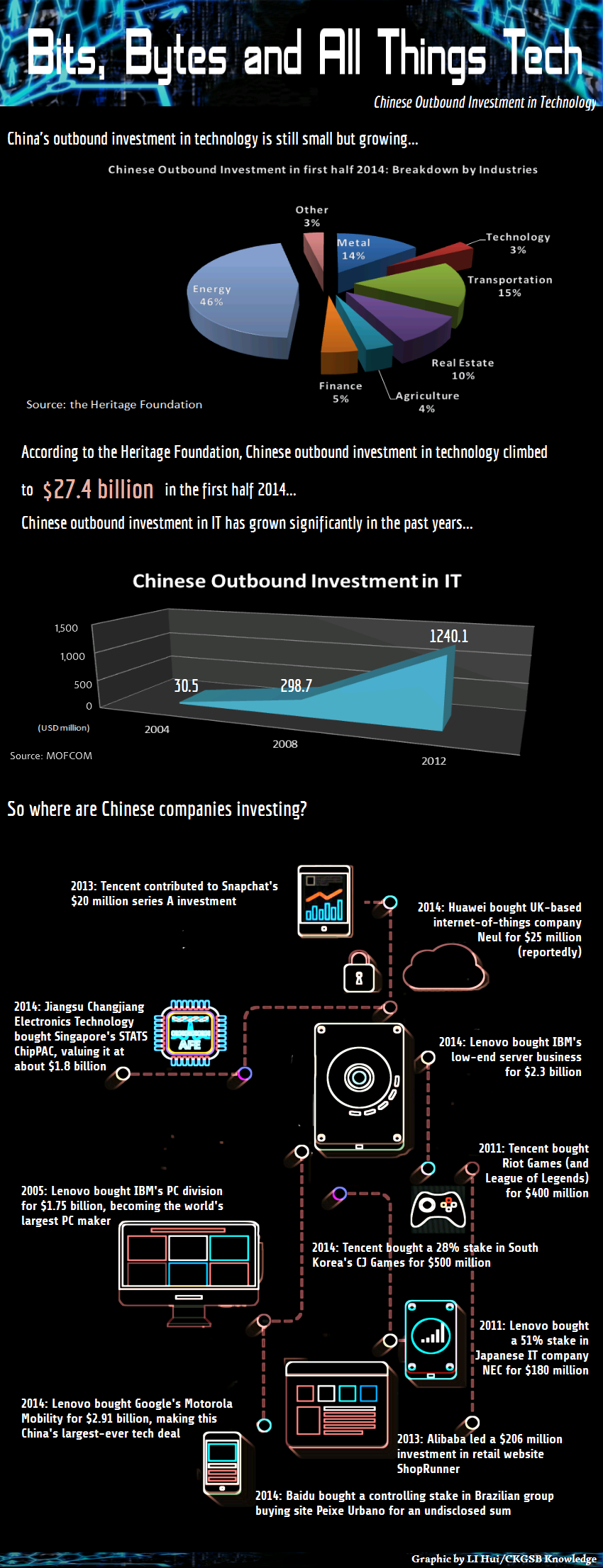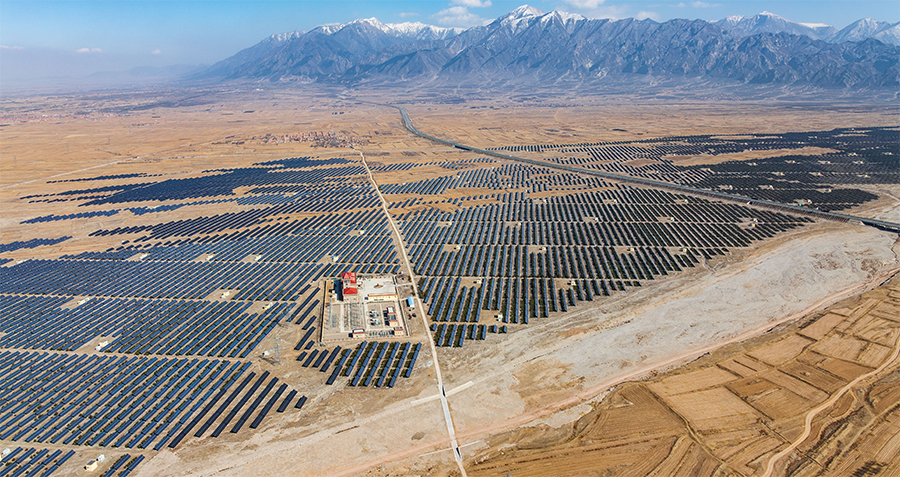Our infographic series on Chinese Outbound Investment is back this week. Previously we explored China’s outbound investment in the real estate, automotive, energy and food sectors. This week we have decided to up the geek quotient by telling you about China’s biggest overseas investments in the tech sector.
When Lenovo bought IBM’s PC division back in 2005, it was considered a landmark deal. With this $1.75 billion acquisition, Lenovo went on to become the world’s largest PC manufacturer. It was the first time a Chinese company had made such a big splash in the global technology sector.
Ever since the Chinese tech sector has come into its own. Companies like Alibaba, Tencent and Huawei have been investing in companies ranging from online game developers to luxury e-commerce sites. In recent years we have seen several deals including marquee names in the global tech industry. In 2014, for instance, Lenovo bought IBM’s low-end server business for a sum of $2.3 billion. A few months later, it bought Motorola Mobility from Google for $2.92 billion, making this China’s largest ever tech deal. The deal also helped Lenovo become the world’s third-largest smartphone maker, surpassing Xiaomi, which, ironically, had just jumped into the Top 3 list earlier on that same day.
Jack Ma, founder of Alibaba and now China’s richest man, and Pony Ma, CEO of Tencent, have been actively investing in companies overseas. In 2011, Tencent bought Riot Games and the popular video game League of Legends for $400 million. In 2013, Tencent showed up in controversial photo messaging app Snapchat’s series A investors list. And more recently it bought a 28% stake in Korea’s CJ Games. Meanwhile, China’s e-commerce colossus Alibaba led a $206 million investment in online retail website ShopRunner. It has also invested $280 million investment in US-based mobile messaging app Tango and $120 million in game developer Kabam.
In the first half of 2014, technology made up only a minute 3% of China’s total outbound investment according to research by the Heritage Foundation, despite the sheer growth in the number of deals. Going forward, we believe, that the number will only become bigger.
Read on to see who is part of the action.



















